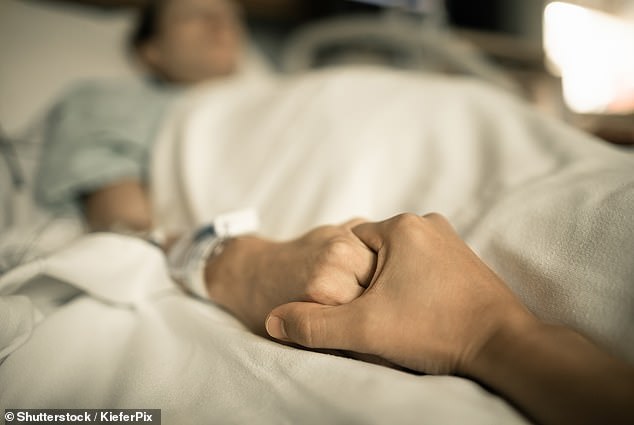Crisis: One in three dying patients ends their lives in severe pain, damning report finds



Patients are being failed at the end of their lives by a health system in crisis, a damning report warned today.
One in three people had “severe or overwhelming” pain in the past week, the largest study on the subject in a decade has found.
Problems accessing the right care often leave patients “dying in distress and alone”, the UK’s largest end-of-life charity has said.
Marie Curie added that the shocking findings showed a health system “in crisis” while patients desperately need support.
Nearly 1,200 family members who had registered the death of a loved one in the past six to 10 months were surveyed. The results were analysed by the University of Cambridge, King’s College London and Hull York Medical School.

The report found that one in three had experienced ‘severe or overwhelming’ pain in the past week (file image)

The report shows that one in five has not had contact with their GP in the past three months (file)
Among other things, questions were asked whether there were services that were difficult to access and whether patients received the help they needed from general practitioners, community nurses, hospital doctors and nurses or a palliative care team.
The answers revealed gaping holes: one in five had not contacted their family doctor in the past three months. Nearly half said their dying loved one had visited the emergency room at least once during this time, usually for painkillers.
According to Marie Curie, this is evidence that ‘too many people who are about to die end up in busy emergency departments because they cannot access appropriate care at home or in a care home’.
Half of the survey respondents said they were dissatisfied with at least one aspect of the care the dying person received. Of these, one in eight filed a formal complaint.
Professor Katherine Sleeman, lead researcher at King’s, said: ‘This research shows that care provision is unequal and inconsistent.
‘While there are examples of excellent care, the overall picture is that services are overloaded and healthcare staff do not have enough time to provide consistently high-quality care.’
Matthew Reed, chief executive of Marie Curie, said the findings painted a “shocking” picture of patients and their families being let down.
He added: ‘The inevitable consequence of this is that people are dying in distress and alone at home, in care homes and in hospitals. It is not good enough.’
Dr Adrian Boyle, head of the Royal College of Emergency Medicine, said: ‘It can be heartbreaking to see people nearing the end of their lives having to seek help or pain relief in emergency departments. It’s not always the most appropriate place. It’s a sign of a system failure.’
The Department of Health and Social Care said it was facing “huge challenges” in the hospice sector. Ministers had met with NHS England to discuss access to and quality of palliative care.




